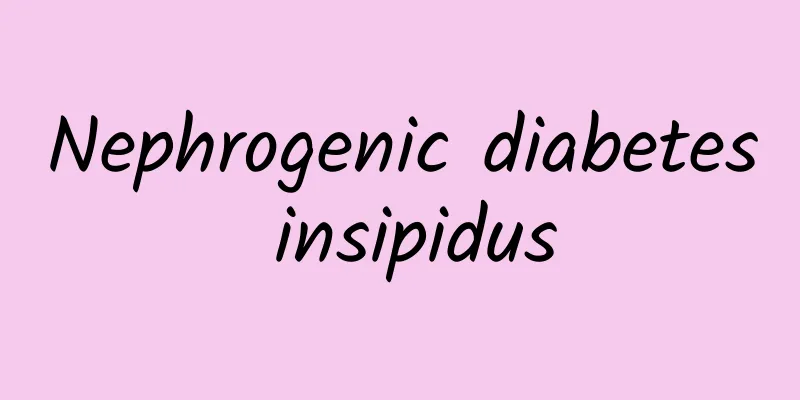What should I do if my child has a fever for three days and keeps having it?

|
It is quite common for children to have a fever in daily life, and the fever usually lasts for a few days. Parents should not worry too much at this time. Fever is a normal functional response of the child's body. As long as it does not exceed 38.5 degrees, it can be greatly improved through some physical cooling. Of course, once it exceeds 38.5 degrees, you should be alert and take the child to the hospital for appropriate treatment in time. What should I do if my child has a fever for three days and keeps having it? 1. When the body temperature is below 38.5℃, physical cooling is the preferred intervention. Fever is the most common symptom of infectious diseases in children. The treatment of fever can be roughly divided into "physical treatment" and "drug treatment". Generally speaking, when a child's body temperature is below 38°C, there is no need to use drug treatment, but choose the correct physical cooling method. For example, applying a fever-reducing patch, drinking plenty of water, and taking a warm bath can all help lower body temperature. 2. Infants and young children with a body temperature above 38.5°C need drug treatment. If you find that your child's body temperature has exceeded 38.5℃, parents should closely observe the child's condition so as to respond in time. For infants and young children, when their body temperature exceeds 38.5℃, they need to be given medication. 3. If the body temperature is above 39°C, medication should be taken under the guidance of a doctor. When a child's body temperature exceeds 39°C and is considered a high fever, Western medicine treatment is usually chosen. Currently, ibuprofen and paracetamol are commonly used antipyretics in clinical practice. These two types of drugs are relatively safe. But one thing that must be made clear is that parents should use the medication under the guidance of a doctor, especially pay attention to the dosage, and send the baby to the hospital for treatment in time. What should children eat when they have a fever? Only a balanced diet can enhance children's resistance and help them recover as quickly as possible. So, what should children eat when they have recurring fever? Parents can let their children take in a balanced diet rich in nutrients such as protein, sugar, fat and minerals, and eat more easily digestible foods such as rice soup. In addition, let your children develop good eating habits. Picky eating and partial eating can easily lead to nutritional imbalance, weakened body resistance to disease, and make them susceptible to virus invasion. (1) Rice soup. Rice soup can provide children with carbohydrates. It has sufficient water content, making it easier for sick children to absorb it. Rice soup is obtained by boiling rice and removing the residue. (2) Mung bean soup. Mung beans are benign and have the effects of clearing away heat, detoxifying and relieving summer heat. (3) Fresh fruit juice. In summer, you can drink watermelon juice, which has the effects of clearing away heat, quenching thirst, and promoting diuresis; in autumn and winter, you can drink fresh pear juice, which has the effects of moistening the lungs, clearing the heart, relieving cough, and removing phlegm; fresh orange juice has the effects of removing dampness, resolving phlegm, clearing the lungs, and unblocking the meridians. Common semi-liquid foods include porridge, eggs, and soft noodles. It is worth noting that liquid food is generally consumed during the acute phase of illness, and semi-liquid food is consumed during the recovery phase or fever-reducing phase. If a child with a fever has a poor appetite, do not force him to eat, so as to avoid stomach discomfort and vomiting after eating, but be sure to pay attention to replenishing water. In addition, do not suddenly add food that the child has not eaten before during the fever period to avoid diarrhea. |
<<: What to do if your child gets a fever?
>>: What medicine is good for children who are frightened?
Recommend
What are the symptoms of myocardial ischemia in pregnant women?
Pregnant women must take myocardial ischemia seri...
Dietary precautions after cholecystectomy
After cholecystectomy, you must pay attention to ...
A small amount of red blood after menstruation
It is normal to have intermittent red blood after...
Is injection effective for lumbar disc herniation?
Most people take conservative treatment when they...
What tests are done to check ovarian function?
The ovary is one of the female reproductive organ...
How to deal with allergic eczema during pregnancy
If you develop allergic eczema during pregnancy, ...
What are the symptoms of limb ataxia?
Ataxia is a movement coordination disorder. Limb ...
What to do with ankle gout
Gout is quite common in our daily life. There are...
What to do if your baby has bloating
Recently, some mothers said in a WeChat group tha...
It turns out that purple daisy has so many functions
Echinacea is not common in daily life, and it req...
It feels like a needle prick when I touch my fingertips
If the tip of your finger hurts when you touch it...
Symptoms of first menstruation after medical abortion
Generally speaking, as long as the female body re...
What causes insomnia and constipation?
There is a certain connection between insomnia an...
What is demyelinating disease
Demyelinating diseases are quite harmful to human...
Is it cerebral palsy if the baby tilts his head back?
Generally speaking, when a baby has head depressi...









